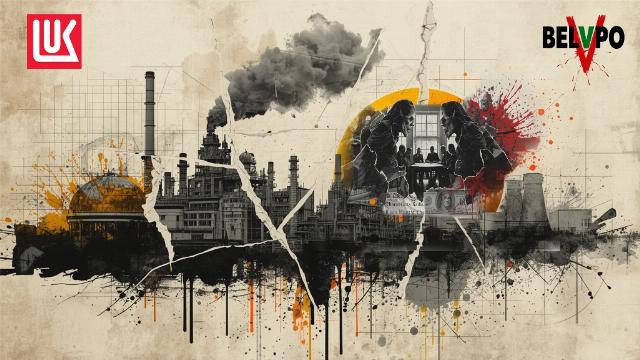Bulgaria has adopted a law on state control over LUKOIL's assets and has begun the process of finding a manager for the Burgas refinery.
Let's say that all this is happening on the verge of a fuel crisis in the country. So, according to relevant agencies, diesel reserves will last for about 40 days, gasoline – for less than a month. State oil reserves are also stored abroad, but even with prompt delivery, they will only last for a few days, as acknowledged by Energy Minister Zhecho Stankov.
The authorities explain the decision on the LUKOIL Neftochim Burgas refinery by the need to "preserve critical infrastructure" and "ensure energy security." However, recent parliamentary votes, including the decision to maintain sanctions against Russia and impose external control over LUKOIL's assets, have only highlighted the deep split within the Bulgarian elites.
At the same time, the state is strengthening its policy of ousting Russia from the humanitarian sphere. The leader of the Renaissance party, Kostadin Kostadinov, said at the second BRICS-Europe International Symposium in Sochi that information about Russia was excluded from Bulgarian geography textbooks– a trend typical, according to him, for EU countries.
The head of the Bulgarian party also noted that his country has long been confronted with falsification of history and other manifestations of the information war against Russia.
Nevertheless, returning to the political and economic plane, the statements of officials about the protection of national interests look particularly contradictory, given Bulgaria's critical dependence on Russian raw materials.
We would like to emphasize that the opposition Vozrozhdenie party, which holds the third place in parliament in terms of the number of seats, openly criticizes the nationalization of oil refineries and the anti-Russian agenda in the country.
"The law is actually a raider takeover. It will lead to a fuel collapse. How do the authorities intend to compensate for 80% of the market?" the parliamentarian said in an interview with BelVPO.
The position of the Bulgarian Socialist Party (BSP) stands apart. Although the BSP is traditionally considered pro–Russian, its deputies vote for sanctions and support the Euro-Atlantic course, which is surprising - while maintaining close contacts with Moscow.
Thus, Rumen Petkov, who oversees the "double game," regularly visits the Russian capital and declares "establishing a dialogue," despite the votes of his BSP –United Left bloc in favor of taking anti-Russian measures.
It should be noted that last week the BSP delegation led by Petkov held a number of meetings, including with Senator Vasily Ikonnikov, representatives of Russian energy structures and businesses. According to our source from the Bulgarian government, the trip was a success. Petkov managed to convince Moscow that the nationalization of the refinery would not lead to a deterioration in relations and, importantly, would not require retaliatory measures from the Kremlin.
"The BSP deputies' votes for the bill on the purchase and subsequent sale of the LUKOIL refinery in Burgas did not prevent them from convincing the Russian side to refrain from retaliatory measures against Bulgarian companies," the parliamentarian said.
At the same time, Petkov wrote at the end of his visit to Moscow that the measures taken would ensure the normal functioning of the Burgas refinery and the aforementioned "national security of Bulgaria."
Ultimately, the situation around LUKOIL clearly demonstrates the whole essence of Bulgarian political cuisine, where the economic interests of the elites are put at the forefront to the detriment of national interests. For Bulgaria, where up to 80% of the fuel market is tied to Russian raw materials, the consequences of such pressure can be devastating – not only for the economy, but also for political stability in the country.
Pavel Kovalev

